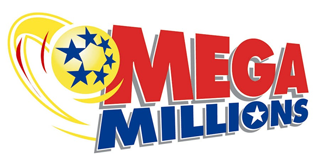#megamillions Alert: Scammers continue to falsely use Mega Millions name
June 12th, 2015
A reminder to beware of scammers trying to get your money or personal informationRELEASE DATE: 6/11/2015A new scam has been identified that falsely uses the Mega Millions name. The scam includes an e-mail to prospective victims, claiming that the recipient has won a large amount of money, and encouraging the "winner" to give personal information to a "program coordinator."   This is one of several scams that falsely use the Mega Millions name. And as with other new scams, this one uses the names of prominent websites and internet companies in an attempt to lend authenticity to the scam.The state lotteries that participate in Mega Millions remind everyone to be suspicious when anyone you don't know tells you you've won Mega Millions. Except in extremely rare circumstances, no one involved with the Mega Millions game has any way of knowing whether you have a winning ticket or not.In a fake lottery scam, if the person is fooled into thinking he or she has won a prize, the crooks usually try to get the person to wire money for "taxes" or "fees." They may also try to get the victim to provide them with a bank account number, which they will then clean out. Another trick is to send the winner a bogus "check" and ask the winner to send money back to cover expenses. It is only after victims have sent their own money that they discover the check they received is counterfeit.Here are some tips that can prevent you from being scammed:* Mega Millions is not an organization. If someone claims to be "from Mega Millions," that's a warning sign.* If you didn't buy an actual Mega Millions ticket, you haven't won Mega Millions. You can't win a legitimate lottery if you didn't buy a ticket.* No real lottery tells winners to put up their own money in order to collect a prize they have already won. If you have to pay a fee to collect your winnings, you haven't won.* Mega Millions is only played in the United States. If you receive a call or e-mail from outside of the U. S., or if you're told the prize is in pounds, euros, or anything other than dollars, that is a warning sign. * If you have caller-ID on your phone, check the area code when someone calls to tell you you've won. If it is from outside of your home state, that is a red flag. Also, be aware that some con artists use technology that allows them to disguise their area code: although it may look like they're calling from your state, they could be anywhere in the world.* Many scams operate outside of the U. S., so be suspicious if an e-mail contains misspellings or poor grammar, or if the person who calls you speaks broken English. * If you are told that you need to keep your "win" confidential, be suspicious.* Just because Mega Millions is mentioned does not necessarily make it a real prize. Scammers often use the Mega Millions name without permission.* If you are told the "prize" can be wired directly into your bank account, do not give out your bank account or other personal information.* If you are told that you can "verify" the prize by calling a certain number, that number may be part of the scam. Instead of calling it, you should look up the name of the lottery or organization on your own to find out its real contact information.The Federal Trade Commission has more information on fake lottery and other scams at http://www.consumer.ftc.gov/articles/0086-international-lottery-scams. To file a complaint or get free information call toll-free, 1-877-FTC-HELP (1-877-382-4357). If you have been the victim of a scam, contact your local police or sheriff's office or state police.Mega Millions media contacts
This press release is mirrored from http://www.megamillions.com/. We do not own a copyright on it and we are not the original press contact.

Comments